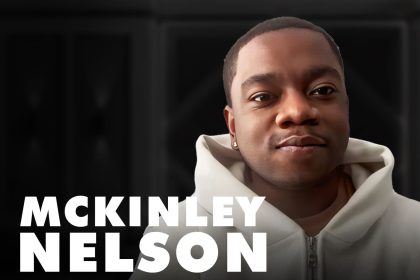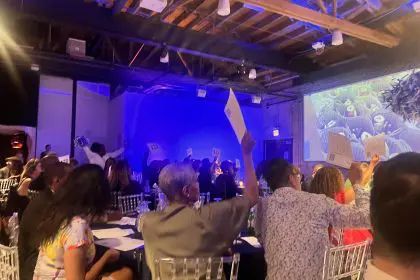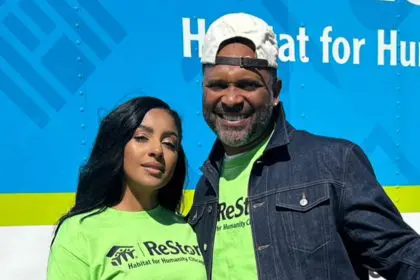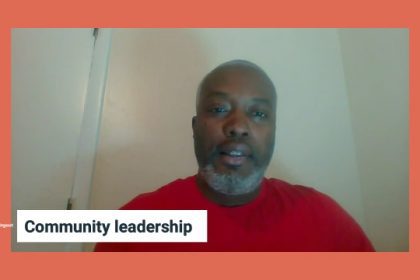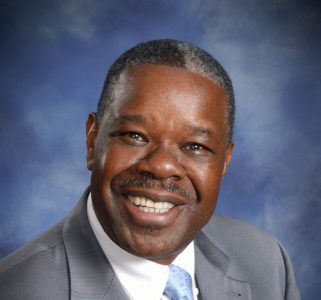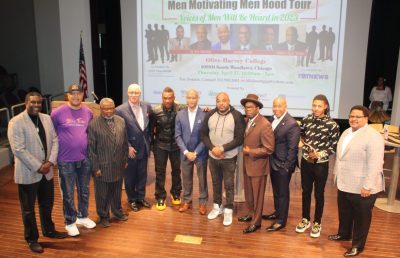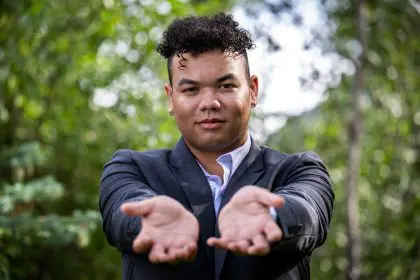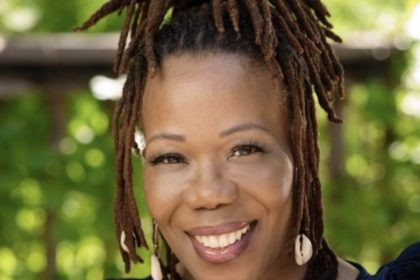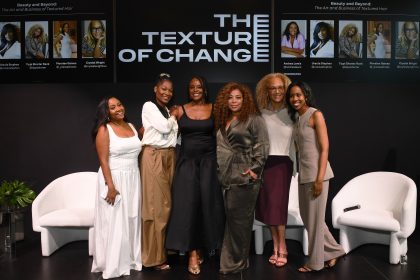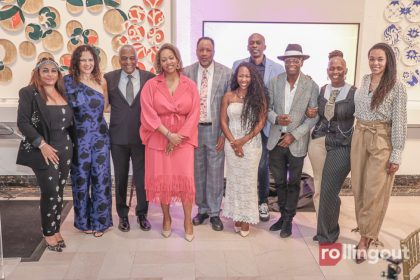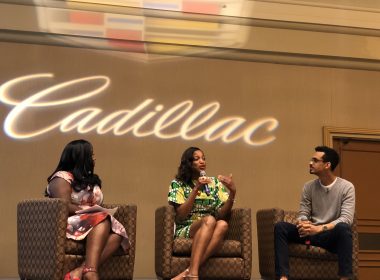
It can be argued that this is one of the most volatile times in our nation’s history. Racism is the undercurrent of many a discussion and Black youth are being viewed as thugs and criminals by some of our most respected politicians. Unemployment, disenfranchisement and poor education leads to an environment that produces individuals who will not be beneficial to Black people specifically and society as a whole. LINK Unlimited Scholars is an organization that has been mentoring Black youth for 50 years and continues to carry the torch when it comes to arming Black children with the tools needed to be successful. We spoke with Dr. Roslind Blasingame-Buford, president and CEO for Link Unlimited Scholars about these issues. It proved to be enlightening, insightful and driven by solutions,
Tell us who you are.
Dr. Roslind Blasingame-Buford (Dr. Roz) and I am a devoted wife, loving mother, caring family member, dedicated mentor, eager mentee, dear friend, self-published author, and humble civic leader. My professional role is President & CEO for LINK Unlimited Scholars, Chicago’s oldest and highest performing African American scholarship and mentoring program. I am a results-driven visionary with more than 15 years of successful outcomes in developing and leading organizations and programs that equip youth with the skills to achieve their educational, career, and leadership potential. I believe greatly in our youth, and am proof-positive that with proper support and resources, young people can reach their potential and realize their dreams.
Tell us about Link Unlimited Scholars. What is your goal?
LINK Unlimited Scholars turns 50 on April 22, 2016! LINK Unlimited continues to be Chicago’s highest performing and most experienced African American high school mentoring and scholarship program, bringing together the comprehensive resources and rigorous approach required to shape high potential youth from underserved neighborhoods into academic achievers and life-long learners. We link our scholars to mentors and educational opportunities to move them from margins to the mainstream, enabling them to confidently and courageously impact their communities. Our goal is to support endeavors that show great promise for developing personal leadership, achievement, and ultimately, success both in and out of the classroom. LINK has served more than 2,200 scholars as they have gone into, through and beyond college. For the past 15 years, 100% of our scholars have graduated from high school and accepted to a 4-year college or university. As we celebrate 50 years of quality services, my goal, which is delineated in our new vision, is: To transform our scholars into committed leaders who by exceeding national college acceptance, persistence, and graduation rates and acquiring sustainable careers will serve the LINK and larger community by modeling lifelong social responsibility and civic engagement for future generations of young people.
What is it about what you do that adds value to the world?
Leadership is service, and one of my amazing co-workers (Jourdan Sorrell) always reminds me that, “Service to others is the rent you pay for your room here on earth” (Muhammad Ali). Through service, I consistently take risks needed to make a positive impact on societal issues that prevent individuals from realizing their true potential. These issues are multifaceted (poverty, educational disparities, lack of parental involvement, physical and mental health concerns, etc.), and require a holistic, collaborative, and coordinated effort if we are ever to see true results. A comprehensive strategy is needed, one that involves a myriad of publics (government, schools, corporations, community adults, and youth) if we are to ever make a true paradigm shift and see success. I strive to add value to our world by advocating for our youth; galvanizing and mobilizing others to get involved; and developing strategies to continuously improve my organization’s impact on these societal issues. Through such efforts, the world will begin to change one life at a time!
What are your thoughts with regard to the youth in Chicago and their struggles?
We are in a unique time in our city. The opportunity gap is far too wide when it comes access to quality education, sustainable jobs/careers, and money to start small businesses. The violence in our under-resourced communities is disproportionately impacting our youth and their families the most. Our youth continue to struggle to find their voice and effectively navigate in a city with significant economic and social challenges. However, I see a positive outlook for our youth with the increased access to internships and jobs through One Summer Chicago, 100,000 Opportunities Initiatives and other education and workforce development programs aimed at ensuring that our youth have the resources to succeed not only today but also in the future. I am further hopeful as I witness the transformation of LINK’s scholars, knowing they will become the next generation of business and civic leaders. Though cliché, our youth are our future, and as we continue to encourage and support their success, the opportunity gap will begin to narrow, and dreams for successful futures will be realized.
How did your upbringing help to develop who you are today?
My upbringing is very similar to that of a typical LINK Scholar: economically disadvantaged, raised by a single teenage mother, with limited resources but abundant potential. Though my family instilled strong values, that wasn’t enough to get me over life’s hurdles; I needed more! Through organizations like The Boys & Girls Club and YMCA, I was connected to adults and opportunities that expanded what my mom/family could provide. I received access to internship opportunities, college access programming, and activities that developed and honed my leadership skills. I am proof-positive that quality mentoring and youth development programs work, and I have dedicated my life to ensuring that youth (like me) have the tools needed to make it from the classroom to the boardroom!
What would you say is the biggest issue affecting our communities today?
This is a very difficult question, as there are multiple issues affecting communities, all of which are critical. However, my personal and professional priority is to attack the issue of educational disparities that plagues economically disadvantaged communities. One of my brilliant co-workers (Alpachino Hogue) poetically stated, “Lack of quality education is the culprit that leads to the social symptom of poverty which begets crime.” Inadequate education implicates economic growth; and where there is poverty there is an increase in crime. The parallel is real but education that can break the cycle of poverty, and as a consequence, will increase the sense of power among the constituents of a neighborhood.
Educational equality is a multi-faced issue that I work tirelessly to address. Shifts must be made to address our current funding formula in order to ensure fairness and make sure students/families aren’t automatically marginalized based on their zip code. There are also clear issues that need to be addressed concerning fiscal effectiveness, including allocation, distribution, and management of funds within school districts. Additionally, greater opportunities for school choice, including examining the prospect of vouchers or tax credits/incentives (work currently being done by One Chance Illinois) to support private school education. Finally, the issues of school culture and teacher accountability must be addressed. Innovative programs and practices have been put into place to incentivize quality teachers and replace ineffective ones, but the system must also be held accountable for supporting teachers and administrators and ensuring they have adequate resources to optimize impact.
Who is your biggest influence and why?
My uncle, the late Dr. Steven Blasingame made a huge difference in my life. Stevie was a selfless man who committed much of his time mentoring and supporting economically disadvantaged youth. He taught me the value of education and inspired me to commit myself to community service. Though he’s no longer physically present, I remain inspired and motivated by the amazing life he lived and embrace my responsibility to serve!
What encouraging words do you have for our readers?
My motto is “the most important thing you can give someone is a chance.” Many of us have been fortunate to be influenced in our lifetime by a family member, neighbor or caring adult. It is our responsibility to become the next generation of mentors to our youth. We have the collective duty to educate, motivate and elevate the future leaders of our city, state and nation.

